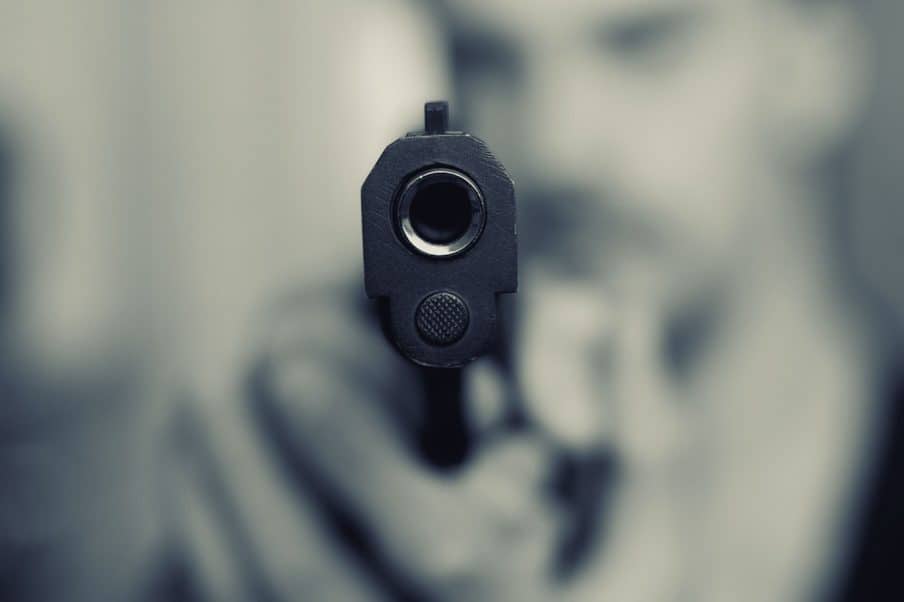Costa Rica is known for its peaceful culture and strict approach to firearms. Gun laws here are tight, designed to keep public safety first while allowing limited legal ownership for specific purposes. Whether you’re a resident, visitor, or curious about regulations near Costa Rica’s borders with Nicaragua and Panama, this guide breaks down the rules, licensing process, penalties, and more. Let’s get into it.
Gun Ownership in Costa Rica
Owning a gun in Costa Rica isn’t easy, and that’s by design. The country prioritizes safety, so firearms are heavily regulated to prevent misuse. You need a license, and every gun must be registered with the government, whether you’re in San José or a border town like Los Chiles.
To legally own a firearm, you must get a gun license from the Dirección General de Armamento y Municiones (DGAM). This involves a background check, a gun safety course, and a medical clearance from a licensed doctor. Only specific firearms—like handguns and shotguns—are allowed, and unregistered guns are illegal. Near borders, enforcement is strict due to concerns about smuggling, with police and border patrols often conducting checks.
Types of Gun Licenses
Not everyone can own the same number or type of guns in Costa Rica. The law sets clear limits based on the type of license you hold, balancing personal needs with public safety.
There are three types of gun licenses:
- Personal Defense License: Permits one handgun for self-defense.
- Sports License: Allows up to three firearms (handguns, rifles, or shotguns) for approved shooting sports. Hunting isn’t permitted, contrary to your original article.
- Professional License: Grants unlimited firearms for professionals like security guards or police, tied to job duties.
Each license requires DGAM approval, and renewals involve rechecks. Border residents face extra scrutiny to prevent illegal cross-border trade, per reports from Prensa Libre.
Penalties for Illegal Firearm Possession
Breaking Costa Rica’s gun laws comes with serious consequences. The country doesn’t mess around when it comes to unregistered or illegal firearms, especially in border areas where smuggling is a concern.
Penalties depend on the offense. Possessing an unregistered firearm can lead to 1–3 years in prison, per Costa Rica’s Penal Code. Illegal firearms, like machine guns or sawed-off shotguns, carry harsher sentences, often 3–5 years.
Fines and confiscation are common, and using an illegal gun in a crime piles on additional charges. Recently, border patrols near Peñas Blancas seized unregistered handguns, highlighting enforcement efforts, according to Tico Times.
Can You Own an AR-15?
Assault rifles like the AR-15 are a hard no in Costa Rica. The law bans civilians from owning military-style weapons to keep firepower low and communities safe.
Only handguns and shotguns are permitted with a valid license. Assault rifles, including AR-15s, are classified as illegal firearms, with possession leading to prison time. This rule applies nationwide, including border regions where authorities are vigilant about smuggled weapons from Nicaragua or Panama.
Self-Defense Laws
Costa Rica allows self-defense, but don’t expect to use a gun for it. The law keeps a tight leash on when and how you can protect yourself, prioritizing de-escalation over force.
You can use reasonable, proportional force to defend yourself or others. Excessive force, especially with a firearm, can land you in legal trouble. Courts rarely view guns as reasonable for self-defense due to their potential for harm. If you’re near the border, where tensions over crime can run high, sticking to non-lethal options is safer and smarter.
Hunting with Guns
Your article incorrectly stated that hunting with guns is allowed under a sports license. In Costa Rica, hunting with firearms is flat-out illegal, reflecting the country’s commitment to wildlife protection.
The law bans hunting any wildlife with guns. Costa Rica’s focus on conservation means firearms can’t be used for hunting, even with a sports license. Air guns, which you mentioned, are also regulated and require a license, contrary to your original claim. Violators face fines or jail, and border areas see extra enforcement to stop illegal hunting.
Air Guns in Costa Rica
Air guns might seem like a loophole, but they’re not. Costa Rica treats them like other firearms, keeping regulations consistent to avoid misuse.
Owning or using an air gun without a license is illegal. You need DGAM approval, which requires the same background check, safety course, and medical clearance as for other firearms. Air guns aren’t on the approved list for personal or sports licenses, so legal ownership is rare. This applies everywhere, including border zones where smuggling checks are frequent.
How to Register a Gun
Registering a gun in Costa Rica is a process that tests your patience, but it’s built to ensure only responsible people own firearms. Here’s how it works, whether you’re in the city or near the border.
- Apply for a gun license through the DGAM.
- Pass a background check to confirm eligibility.
- Complete a mandatory gun safety course.
- Get a medical clearance proving physical and mental fitness.
Once approved, you register your firearm with the DGAM, providing details like make and serial number. The process takes weeks, and border residents may face extra documentation to address smuggling risks, per DGAM guidelines.
Table: Gun License Types and Limits
| License Type | Firearms Allowed | Purpose |
|---|---|---|
| Personal Defense | 1 Handgun | Self-defense |
| Sports | Up to 3 (Handguns, Rifles, Shotguns) | Shooting sports |
| Professional | Unlimited | Job-related (e.g., security) |
This table summarizes the license types and their restrictions, making it easy to understand Costa Rica’s rules.
Final Thoughts
Costa Rica’s gun laws are strict for a reason: keeping the country safe while allowing limited, responsible ownership. From license limits to bans on assault rifles and hunting, the rules are clear. Near borders, enforcement ramps up to curb smuggling, as seen in recent news. If you’re considering gun ownership, follow the DGAM process closely and stay within the law.

